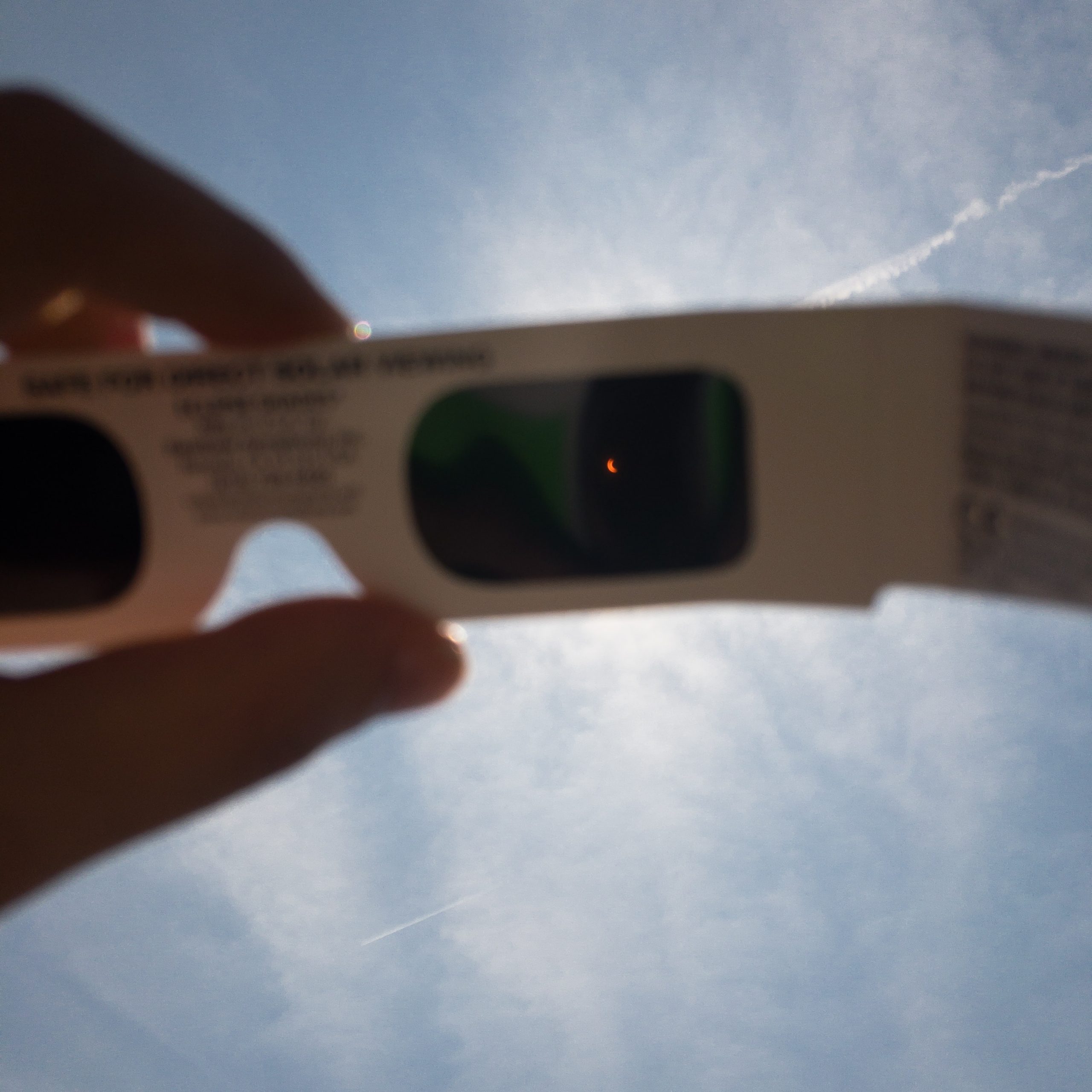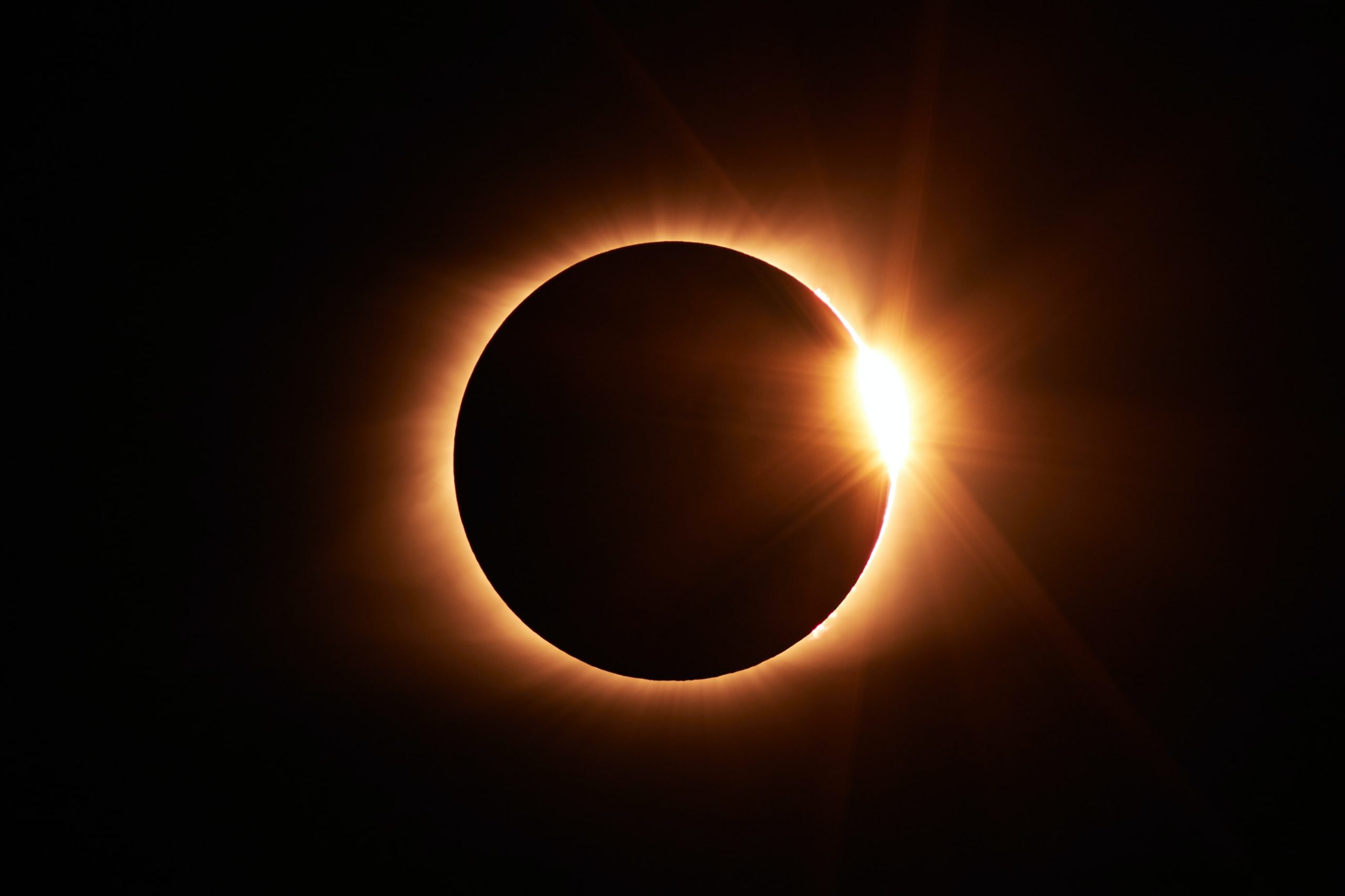Solar Eclipse & Eye Care
We are witnessing a solar eclipse today which requires proper eye care. The solar eclipse can be a memorable experience with proper protection but can lead to permanent visual loss (solar retinopathy) if one looks directly at it. Even looking at it through dark sunglasses or homemade filters can lead to a similar fate.
The only proven and safe method is looking at it through solar filters which come in various forms but should meet a world wide standard known as ISO 12312-2.
Tips for a safe solar eclipse viewing experience :

- Look at a solar eclipse only through a solar filter
- It should not have any scratches or damage
- Never remove the filter while looking at the sun, turn away and then remove it
- The only time one can look at a solar eclipse event with naked eyes is when the sun is totally covered by the moon and it has suddenly gotten dark. As soon the sun starts appearing, use your solar filters again.
- There are solar filters available for cameras, telescopes and binoculars and one should never look at never look at the uneclipsed or partially eclipsed sun through an unfiltered even if you are using solar viewers.
Here are few points to guide you if you have watched the Solar Eclipse through naked eyes :
1. The presenting symptoms can be any of the following
a. reduced vison
b. black spot in the middle of eye
c. disturbance/distortion in vision
d. difficulty to see in bright light
e. disturbance in appreciating colour
2. These symptoms are usually bilateral but may be asymmetric. Though symptoms in one eye are also possible.
3. The symptoms may not appear immediately as they progress and evolve over days. Usually one is able to appreciate the symptoms within the first few hours.
4. So, it’s important to visit an Ophthalmologist whenever possible and have regular follow-ups in the coming days.
5. People with clear media ( i.e., without any refractive errors or cataracts ) seem to be more effected.
6. The damage may be greater if you have seen the eclipse through a device ( camera , telescope , binoculars etc) without a solar filter as compared to naked eyes.
7. An Ophthalmologist may run the following tests on your eyes to determine the damage, though all are not mandatory :
a. Vision Test
b. Colour Vision
c. Dilated eye exam
d. Field Test
e. OCT
f. Angiography of the Eye
7. Though the best form of treatment is indeed prevention, some people have reported success with steroids and vitamins for the retina.

Dr. Diva Kant Misra





